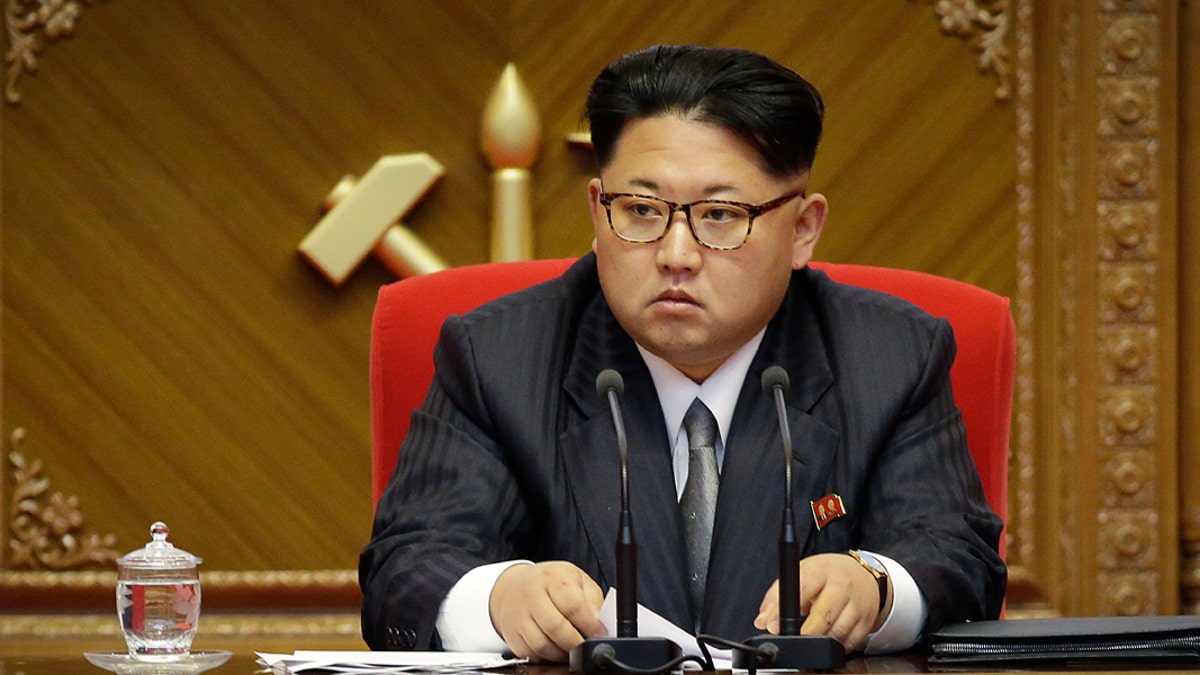
FILE - In this May 9, 2016 file photo, North Korean leader Kim Jong Un listens during the party congress in Pyongyang, North Korea. (AP Photo/Wong Maye-E, File)
Ten years ago on Oct. 9, North Korea detonated its first nuclear device. While experts agree that the first nuclear test may have been a failure, today North Korea has claimed its become a bit more sophisticated – testing hydrogen bombs and nuclear warheads.
Since the first nuclear test, the general thrust of U.S. foreign policy has been an attempt to economically and politically isolate and punish North Korea with U.N. coordinated sanctions, but they have been obviously ineffective in stopping advances in North Korea’s nuclear program.
In large part, this failure is due to lax enforcement of sanctions by China; she fears political instability and chaos in North Korea more than Pyongyang having a small nuclear arsenal.
Moreover, economic pressure on North Korea has not generated significant domestic political opposition to the ruling regime since this brutal police state effectively suppresses all dissent. In addition, having already developed nuclear weapons, the military/totalitarian regime in Pyongyang will be loath to give up the strategic deterrent actively sought for many years.
The United States should reject the option of preventive war against North Korea. Given the risk of a nuclear exchange, which potentially could cause millions of lives to be lost and severe global environmental damage, American leaders should view even a limited preventive strike on a North Korean nuclear or missile facility as unthinkable.
At the same time, any U.S. president responding to an aggressive provocation, like the 2010 sinking of a South Korean naval vessel by a North Korean torpedo, should seriously weigh the expected benefits against the potential risks, erring on the side of caution since the uncertainty and the magnitude of potential loss is so great.
The United States must find a fundamentally different approach to the North Korean nuclear problem before an accident, provocation or miscalculation leads to a dangerous and escalating military confrontation.
In essence, diplomacy and negotiations must take precedence over economic or military pressure: the United States should seek an official end to hostilities on the Korean peninsula; a peace agreement would be ideally packaged with a North Korean commitment to return to the Nuclear Non-Proliferation Treaty and to abide by the Comprehensive Test Ban Treaty under monitoring by UN inspectors.
Moreover and most importantly, the peace agreement should include restrictions on future missile tests. In addition, as part of the deal, China would encourage North Korea to move toward the China model of economic development by providing huge economic incentives and financial aid.
The United States and a key ally have responded to North Korean nuclear and missile advances with a decision to deploy missile defense systems in South Korea.
Since China has strong reasons to minimize American activities in missile defense, China could decide to not only broker a diplomatic breakthrough, but to sweeten any deal with vast economic carrots to North Korea.
By achieving an agreement as just described, the United States and South Korea could pledge to put any missile defense deployments on hold.
However, negotiations today are stymied by a preconditions demanded by the United States: North Korea must enter negotiations having pledged to move toward nuclear disarmament. The United States should put that desirable long-term goal aside and instead focus on the immediate goal of placing effective constraints on their existing nuclear and missile programs.
The above strategy is based on several assumptions. First, more trade and investment flows between North Korea and the rest of the world tends to create change or political reform within an authoritarian system.
Second, a greater exchange of goods, services and people with the outside world will also lead to better intelligence about their government’s capabilities and intentions, already augmented by the return of UN inspectors to the country.
Third, greater wealth creation made possible by rising international transactions also makes risky behavior in international politics less likely, whether it be military conflict or selling nuclear material on the black market.
Fourth, the international community, or all members of the NPT, could agree to implement strict international controls on dual-use technology and military sales.
Lastly, in all probability, the nuclear problem in North Korea can only be contained and will not be completely resolved with denuclearization until either 1) major political changes within North Korea occur or 2) all the nuclear powers on the U.N. Security Council decide to seriously manage a collective process toward worldwide nuclear disarmament.
